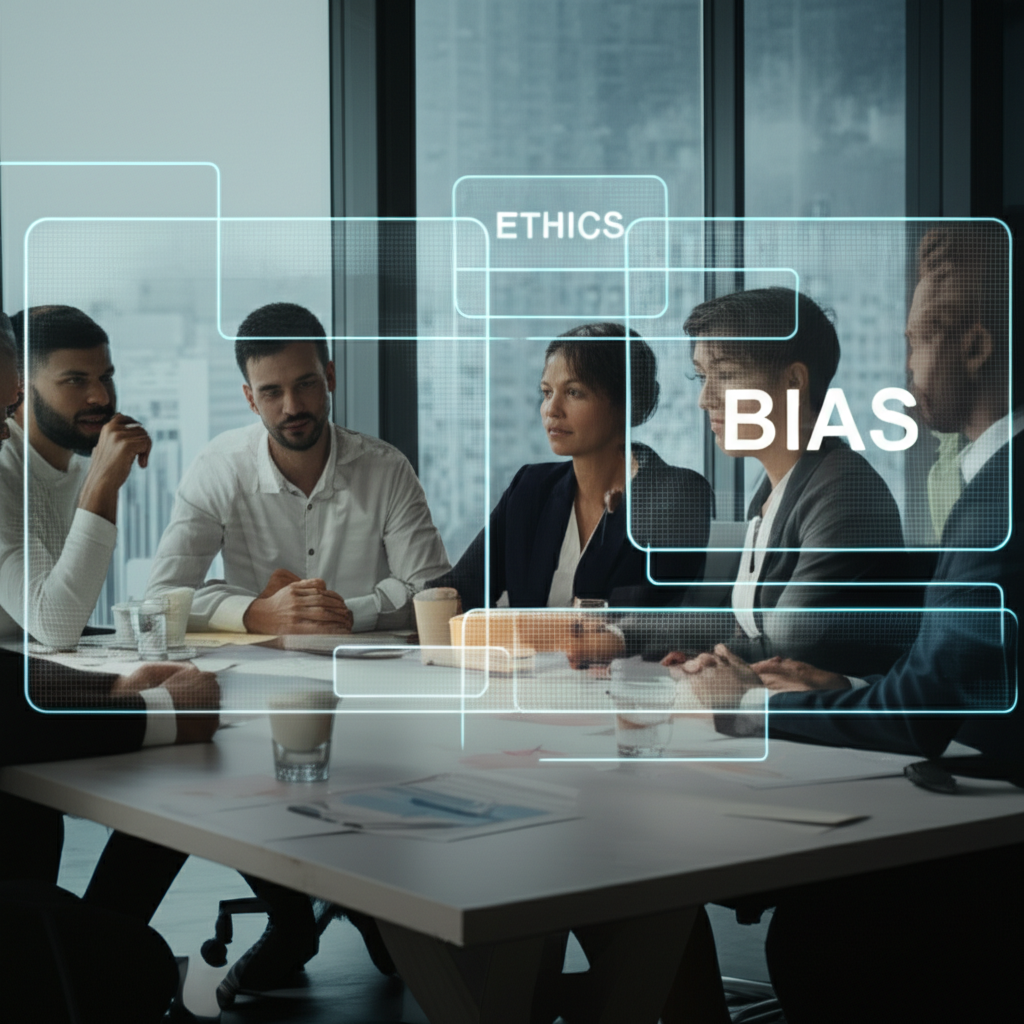The rise of Artificial Intelligence often sparks fears of widespread job loss. While AI will undoubtedly automate certain tasks, history shows that major technological shifts also create entirely new industries and professions. Just as the Industrial Revolution spawned factory managers, engineers, and machinists, and the internet boom gave rise to web developers, SEO specialists, and social media managers, AI is poised to be a catalyst for unprecedented career innovation. For a broader perspective on AI’s impact, consider exploring resources on the future of work trends.
AI is not just about replacing human workers; it’s fundamentally transforming the global workforce landscape. This transformation will give rise to specialized, human-centric roles that don’t compete with AI but instead leverage its incredible capabilities. These emerging careers require uniquely human skills like creativity, critical thinking, ethical judgment, and complex problem-solving, combined with an understanding of how to work with intelligent machines.
This article will dive deep into specific, high-potential job categories and roles that AI is bringing into existence. We’ll explore the foundational roles in building and maintaining AI, positions focused on human-AI collaboration, and strategic applications across various industries. Get ready to unveil the exciting new career paths of the AI era.

The Foundational Pillars: AI Development & Infrastructure
At the core of the AI revolution are the roles focused on building, maintaining, and refining the intelligent systems themselves. These professionals ensure that AI is not only functional but also reliable, scalable, and responsibly built. They are the architects and custodians of the AI ecosystem.
AI Ethicists and Governance Specialists
These crucial roles are dedicated to ensuring AI systems are developed and used ethically, fairly, and transparently, adhering to legal and societal norms. They are the moral compass guiding AI development.
- Role Description: Professionals focused on the responsible design, deployment, and use of AI.
- Key Responsibilities:
Developing ethical guidelines for AI.
Auditing AI for bias.
Advising on AI compliance (like GDPR or future AI acts).
Facilitating societal impact discussions.
Collaborating across legal, tech, and policy teams.
- Required Skills: Ethical reasoning, legal knowledge, AI understanding, critical thinking, communication, policy analysis.
AI Prompt Engineers & AI Trainers
These specialists are vital for unlocking the potential of generative AI models and ensuring their accuracy. They craft the inputs that yield desired outputs or prepare the data that fuels learning.
- Role Description: Experts in crafting inputs for AI models and curating training data.
- Key Responsibilities:
Designing prompts for text, image, code, and audio generation.
Understanding specific AI model nuances.
Analyzing outputs for model improvement.
Creating and annotating training datasets.
Providing feedback to AI developers.
- Required Skills: Linguistic precision, domain expertise, creativity, analytical skills, basic scripting, machine learning understanding.
Machine Learning Operations (MLOps) Engineers
Bridging the gap between AI model development and deployment, MLOps engineers ensure AI systems operate seamlessly, scalably, and reliably in production environments. They automate the AI lifecycle.
- Role Description: Professionals ensuring scalable and reliable AI system operation.
- Key Responsibilities:
Automating the ML lifecycle (training, deployment, monitoring).
Building infrastructure for AI models (e.g., using AWS, Azure, GCP).
Implementing CI/CD for ML pipelines.
Monitoring model performance and orchestrating retraining.
Ensuring security and cost-efficiency using tools like Docker and Kubernetes.
- Required Skills: DevOps, cloud computing, ML knowledge, software engineering, containerization.
Bridging the Gap: Human-AI Collaboration & Integration
Making AI accessible, understandable, and truly beneficial for human users is critical. This section highlights roles focused on designing intuitive interactions, mediating between humans and AI, and integrating AI into creative workflows.
AI Interaction Designers (AI UX/UI)
Designers specializing in creating intuitive, effective, and ethical user experiences for AI-powered products and services. They shape how humans and AI communicate.
- Role Description: Designing user experiences for AI products.
- Key Responsibilities:
Conducting user research on human-AI interaction.
Designing conversational interfaces.
Prototyping and testing AI interfaces.
Ensuring AI transparency and explainability.
Collaborating with engineers and product managers.
- Required Skills: UX/UI design, human-computer interaction (HCI), cognitive psychology, AI understanding, empathy.
AI System Ombudsmen/Advocates
Individuals who act as mediators or liaisons, ensuring user understanding, addressing grievances, and advocating for user needs within AI design processes. They build trust in AI systems.
- Role Description: Mediating between users and complex AI systems.
- Key Responsibilities:
Investigating AI system errors.
Explaining complex AI outputs to non-experts.
Collecting user feedback on AI performance.
Mediating disputes involving AI.
Advocating for user-centric AI development.
- Required Skills: Communication, empathy, problem-solving, basic AI understanding, conflict resolution.
AI-Enhanced Creative Professionals
These are not roles replaced by AI, but roles augmented by it. Creative individuals leverage AI tools to inspire, accelerate, and enhance their artistic and design processes.
- Role Description: Creatives using AI to augment their work.
- Key Responsibilities:
Guiding AI to generate concepts (e.g., using text-to-image tools).
Curating and refining AI-generated elements.
Experimenting with AI tools for new styles.
Adding unique human artistic depth.
Mastering domain-specific AI creative tools.
- Required Skills: Artistic talent, creativity, proficiency with AI creative tools, domain expertise (writing, music, design etc.), curatorial skills.

Strategic & Specialized AI Application
Applying AI effectively in specific industries to drive value and innovation is a major area for new jobs. These roles focus on strategy, specialized domain application, and integrating AI with other technologies like robotics.
AI Transformation Strategists/Consultants
Experts who guide organizations through the strategic adoption, integration, and scaling of AI technologies to achieve business objectives. They bridge the gap between AI potential and business reality.
- Role Description: Guiding organizations through strategic AI adoption.
- Key Responsibilities:
Identifying high-impact AI opportunities.
Developing AI roadmaps.
Assessing organizational AI readiness.
Calculating AI initiative ROI.
Advising on data strategy and ethical deployment.
- Required Skills: Business acumen, project management, AI understanding, industry expertise, change management, communication.
AI-Driven Healthcare Specialists
Professionals applying AI and machine learning to advance medical diagnostics, personalized treatment, drug discovery, and healthcare operations. AI is revolutionizing medical possibilities.
- Role Description: Applying AI in healthcare for diagnosis, research, and operations.
- Key Responsibilities:
Interpreting AI medical insights.
Designing AI models for prediction (e.g., disease progression).
Using AI to accelerate drug discovery.
Ensuring ethical AI use in healthcare.
Collaborating with medical professionals.
- Required Skills: Medical/biological sciences background, data science, machine learning, analytical skills, ethical reasoning, regulatory understanding.
Robotics and AI Integration Engineers
Engineers who design, develop, and integrate robotic systems with advanced AI capabilities for autonomous operation in various sectors like manufacturing, logistics, and service.
- Role Description: Designing and integrating AI into robotic systems.
- Key Responsibilities:
Designing AI-integrated robotic hardware/software.
Programming robots for complex tasks.
Implementing AI for path planning, recognition, interaction.
Testing and maintaining autonomous systems.
Ensuring safety in human-robot collaboration.
- Required Skills: Robotics, AI, machine vision, control systems, mechatronics, programming (Python, C++).
Upskilling and Reskilling for the AI Era
The AI era isn’t just about creating new jobs; it’s also about evolving existing ones. Adaptation is key, requiring professionals in almost every field to acquire new AI-relevant skills to remain competitive and effective.
Crucially, the value of uniquely human attributes increases. Skills like critical thinking, creativity, emotional intelligence, complex problem-solving, ethical reasoning, and collaboration are areas where AI struggles to replicate human nuance. Developing these ‘human-centric’ skills alongside AI understanding is vital.
Accessible learning pathways are readily available. Individuals can acquire AI skills through online courses from platforms like Coursera and edX, specialized certifications, intensive bootcamps, and traditional university programs. Many forward-thinking companies are also investing in AI literacy and reskilling programs for their workforce, fostering an ‘AI-ready’ culture from within.
Here’s a quick look at the focus areas of these new roles:
| Category | Primary Focus | Example Roles |
|---|---|---|
| Development & Infrastructure | Building & maintaining core AI technologies | AI Ethicist, Prompt Engineer, MLOps Engineer |
| Human-AI Collaboration | Designing interaction & integrating AI with users | AI UX Designer, AI Ombudsman, AI Creative |
| Strategic & Specialized Application | Applying AI in industries & specific domains | AI Strategist, Healthcare AI Specialist, Robotics Engineer |
Conclusion
Far from being solely a force for job displacement, AI is a powerful catalyst for job creation, ushering in an era of exciting and specialized career opportunities. As we’ve seen, these roles span a broad spectrum, from the highly technical work of building AI systems to the critical ethical oversight and the innovative application of AI in creative fields and specific industries like healthcare and robotics.
The emergence of these positions underscores a fundamental truth: human ingenuity and adaptability remain paramount. AI serves as a powerful tool that amplifies human potential, tackles complex challenges, and leads to unprecedented innovation not only in technology but also in the job market itself. Embracing AI, understanding its capabilities, and developing the skills to collaborate with it are the keys to thriving in the future of work.
FAQ
Q1: Will AI eliminate more jobs than it creates?
A1: Historically, major technological shifts have created more jobs than they destroyed, though they also caused significant shifts and required new skills. Many experts believe AI will follow this pattern, automating tasks but creating entirely new roles focused on developing, managing, integrating, and applying AI.
Q2: What are the most important skills for future jobs in the AI era?
A2: Technical AI skills (like prompt engineering, MLOps) are important, but uniquely human skills are crucial. These include critical thinking, creativity, emotional intelligence, complex problem-solving, ethical reasoning, adaptability, and collaboration.
Q3: How can I prepare for the future job market impacted by AI?
A3: Focus on continuous learning. Acquire digital and AI literacy, understand how AI tools can augment your current role, develop strong human-centric skills, and explore specific training or certifications in emerging AI fields that align with your interests.
Q4: Are these new AI jobs only for tech experts?
A4: While some roles require deep technical knowledge, many emerging AI-related jobs will need domain expertise combined with AI understanding (like AI in healthcare or AI-enhanced creativity). Roles like AI Ethicists or AI System Ombudsmen require strong human-centric skills and ethical reasoning rather than just technical coding expertise.
Q5: How quickly will these new jobs appear?
A5: Many of these roles are already beginning to emerge or are rapidly growing fields. The pace of change varies by industry and region, but the trend towards AI-driven job creation is accelerating.

